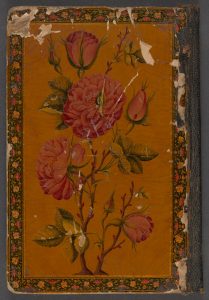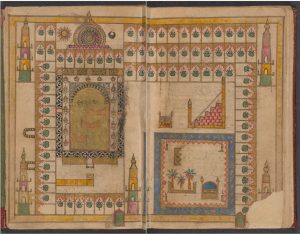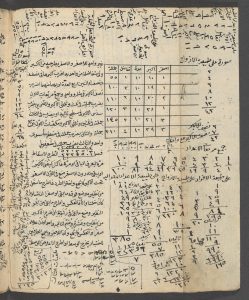As a part of the Manuscripts of the Muslim World project, a team of librarians, faculty, students, and other experts from Columbia University, University of Pennsylvania, and the Free Library of Philadelphia are working together to catalog and digitize their libraries’ manuscripts in Arabic and Persian, along with examples in Avestan, Berber, Coptic, Ottoman Turkish, Samaritan, and Syriac. Manuscripts from the libraries at Bryn Mawr College and Haverford College are also being included. As texts, these holdings represent the flourishing intellectual and cultural heritage of Muslim lands from 1000 to 1900 CE, covering mathematics, astrology, history, law, literature, as well as sacred texts including the Qur’an and Hadith. As manuscripts, these unique objects also exemplify traditions of calligraphy, illumination, and bookbinding from this period, and carry traces of the many scribes, patrons, readers, and collectors who produced, read, and owned them.
…these holdings represent the flourishing intellectual and cultural heritage of Muslim lands from 1000 to 1900 CE, covering mathematics, astrology, history, law, literature, as well as sacred texts including the Qur’an and Hadith.

After the first year of the project, which is funded by the Council on Library and Information Resources, over two hundred manuscripts from the participating institutions are now newly available in digital editions on the OPenn website, with more added constantly. Over half of those are of manuscripts held in the Rare Book & Manuscript Library, which can also be searched in CLIO.
As the project continues over the next two years, it is anticipated that the online collection will grow to more than 500 manuscripts and 800 paintings from the partner institutions. This will include some manuscripts from the Burke Library at Union Theological Seminary as well. Digital editions of Columbia’s manuscripts will also be made available as part of the University’s collections in the Internet Archive.
Updates on the project, including selected images, can be found on Twitter at @MMWProject.
– Matt Haugen, Rare Book Cataloger, Columbia University Libraries

